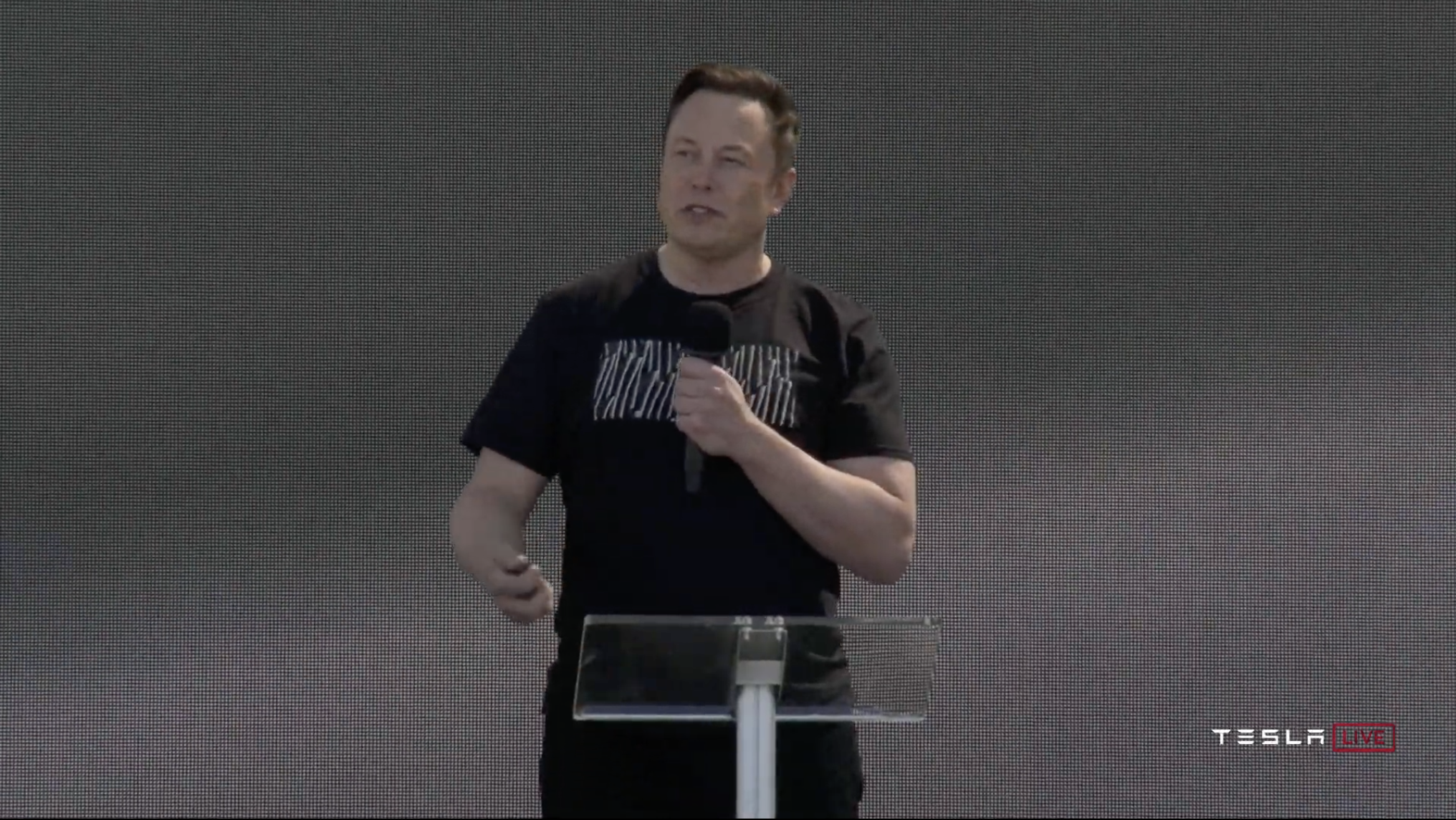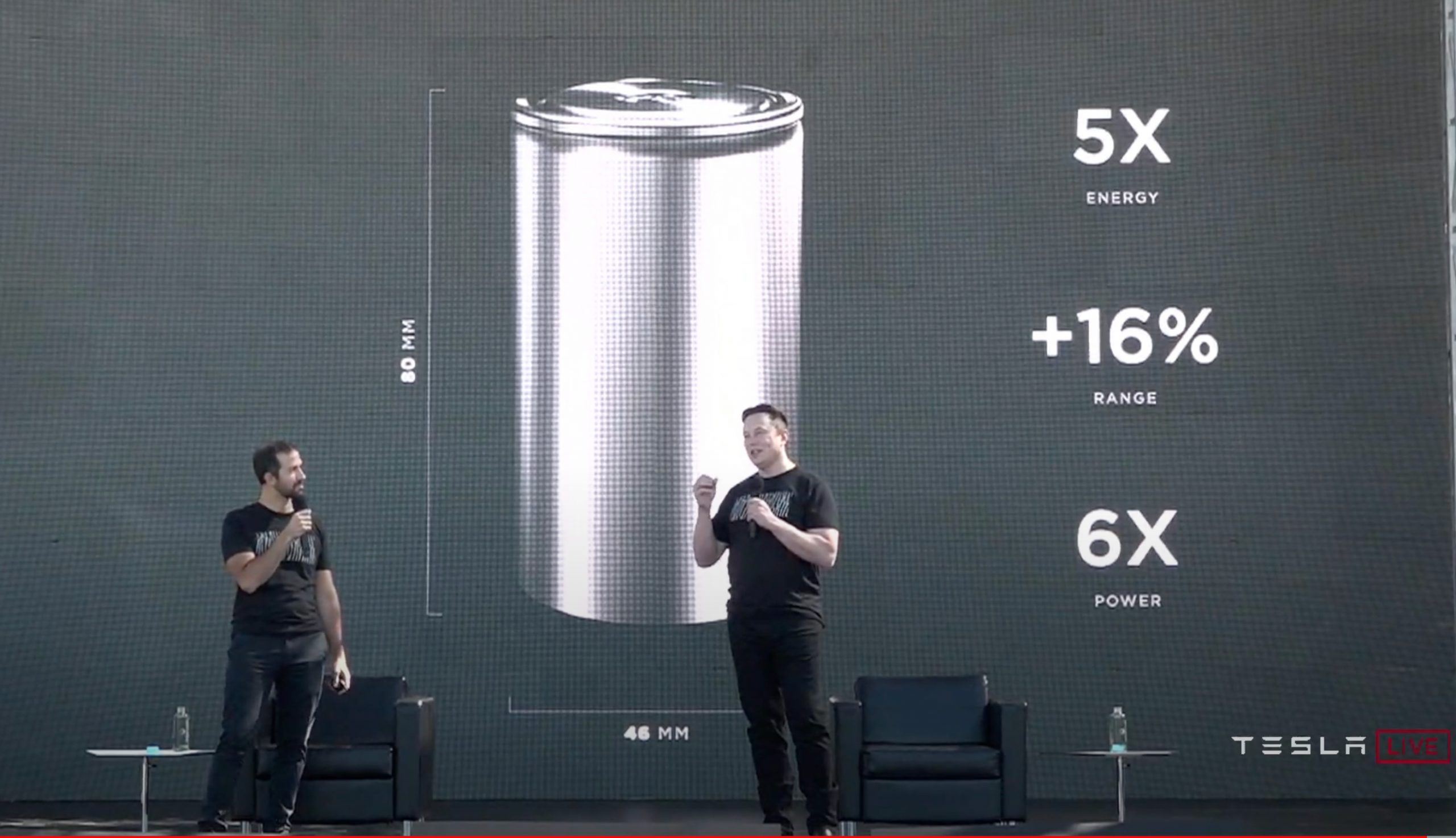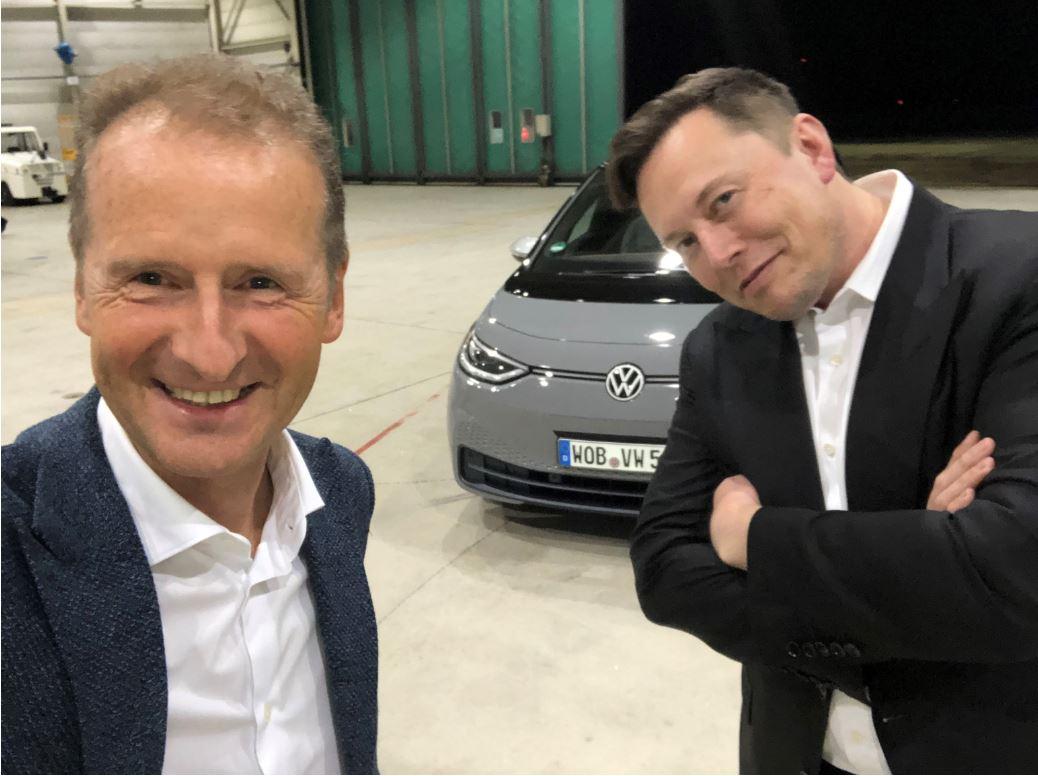

News
Tesla’s Elon Musk strikes diplomatic note on climate change, oil and gas in podcast interview
Tesla CEO Elon Musk has been outspoken on many issues over the years, and as the leader of the most successful electric car company in the world, it’s not surprising when his comments are aimed at skeptics of climate change and promoters of oil and gas industry expansions. That said, Musk is also quite aware of the nuances involved with industry that make things less binary than green energy advocates often frame them. In a recent podcast hosted by Kara Swisher called Sway, the serial entrepreneur took a more diplomatic tone than usual when discussing our planet’s future, fossil fuels, and the people involved in their production.
Swisher’s interview style is straightforward, and her opinions on matters under discussion are barely veiled. After a rocky start that prompted Musk to become a bit combative in his replies (“Sell your stock, I don’t care. What’s the point of this podcast?”), their discussion made its way to the emerging climate-focused market and steps being taken by governments both in the US and around the world. “I think these are all indications that the end of fossil fuel vehicle is nigh,” Musk replied in reference to his thoughts on California Governor Gavin Newsom’s latest executive order banning the sale of new fossil fuel vehicles by 2035.
Building further on that topic, the Tesla CEO also offered less-dire thoughts about where Earth is headed if the transition to sustainability is hindered. “I do not think this is actually the end of the world. I just think things get riskier,” Musk said after referencing the unprecedented growth of CO2 ppm currently in the atmosphere. “We need to think in terms that are not super binary… The actions that we take change the probability that the future will be good.” While his comments were somewhat positive, he still kept a realistic focus. “If you think of how civilizations have developed, we’ve put ourselves right on the edge of the water. If that water level rises even a little bit, you’ve got major problems.”

In yet another unusual diplomatic stroke, Musk also had sympathetic words for people who’ve worked in the oil and gas industry as a career. “Honestly, I feel a bit bad about hating on people in the oil and gas industry,” he admitted. “For a lot of people in the oil and gas industry, especially that are on the older side, they kind of built their companies and did their work before it was clear this was a serious issue… And now…people are kind of making them out to be villains when for the longest time they were just working hard to support the economy and didn’t really know it was gonna be all that bad.”
Swisher pointed out that it was odd for Musk to speak on behalf of the industry he’s been so tough on in the past, but Musk reminded her that his foray into electric cars was more about running out of oil vs. the dangers of burning it and releasing the CO2 into the atmosphere. In his early years, the Tesla chief wasn’t aware of the environmental impact of fossil fuels as much as understanding that running out of them would bring the collapse of civilization.

Musk’s diplomacy then made it all the way to the White House. “Arguably, he’s been as supportive as he can be on the electric car front, recognizing that a massive part of the Republican support is coming from oil and gas,” he noted in reference to US President Donald Trump after Swisher inquired about his political positions in the upcoming elections. After a further challenge from the podcast host over policies taken up by political parties, the CEO refrained from taking a hard-and-fast position. “If you’ve got a two-party system, then the problematic issues are gonna kind of fall somewhat randomly into one party or the other. Like, it’s not clear to me that there’s a cohesive set of reasoning why these things are in one party vs. another. They seem semi-random.”
The Sway episode touched on nearly every topic Musk is involved in – artificial intelligence, Neuralink, and SpaceX included. There was one other issue, though, that he had not-so-diplomatic words to offer. “The press coverage of [Battery Day] was sad. Most of the press takeaway was a sad reflection of their understanding, really,” he lamented. “I’m also not trying to convince people that much. The results will speak for themselves… We have had cars driving with those cells since May.”
You can listen to the full Sway podcast interview with Swisher and Musk here.
Elon Musk
Tesla begins expanding Robotaxi access: here’s how you can ride
You can ride in a Tesla Robotaxi by heading to its website and filling out the interest form. The company is hand-picking some of those who have done this to gain access to the fleet.

Tesla has begun expanding Robotaxi access beyond the initial small group it offered rides to in late June, as it launched the driverless platform in Austin, Texas.
The small group of people enjoying the Robotaxi ride-hailing service is now growing, as several Austin-area residents are receiving invitations to test out the platform for themselves.
The first rides took place on June 22, and despite a very small number of very manageable and expected hiccups, Tesla Robotaxi was widely successful with its launch.
Tesla Robotaxi riders tout ‘smooth’ experience in first reviews of driverless service launch
However, Tesla is expanding the availability of the ride-hailing service to those living in Austin and its surrounding areas, hoping to gather more data and provide access to those who will utilize it on a daily basis.
Many of the people Tesla initially invited, including us, are not local to the Austin area.
There are a handful of people who are, but Tesla was evidently looking for more stable data collection, as many of those early invitees headed back to where they live.
The first handful of invitations in the second round of the Robotaxi platform’s Early Access Program are heading out to Austin locals:
I just got a @robotaxi invite! Super excited to go try the service out! pic.twitter.com/n9mN35KKFU
— Ethan McKanna (@ethanmckanna) July 1, 2025
Tesla likely saw an influx of data during the first week, as many traveled far and wide to say they were among the first to test the Robotaxi platform.
Now that the first week and a half of testing is over, Tesla is expanding invites to others. Many of those who have been chosen to gain access to the Robotaxi app and the ride-hailing service state that they simply filled out the interest form on the Robotaxi page of Tesla’s website.
That’s the easiest way you will also gain access, so be sure to fill out that form if you have any interest in riding in Robotaxi.
Tesla will continue to utilize data accumulated from these rides to enable more progress, and eventually, it will lead to even more people being able to hail rides from the driverless platform.
With more success, Tesla will start to phase out some of the Safety Monitors and Supervisors it is using to ensure things run smoothly. CEO Elon Musk said Tesla could start increasing the number of Robotaxis to monitors within the next couple of months.
Elon Musk
Tesla analyst issues stern warning to investors: forget Trump-Musk feud

A Tesla analyst today said that investors should not lose sight of what is truly important in the grand scheme of being a shareholder, and that any near-term drama between CEO Elon Musk and U.S. President Donald Trump should not outshine the progress made by the company.
Gene Munster of Deepwater Management said that Tesla’s progress in autonomy is a much larger influence and a significantly bigger part of the company’s story than any disagreement between political policies.
Munster appeared on CNBC‘s “Closing Bell” yesterday to reiterate this point:
“One thing that is critical for Tesla investors to remember is that what’s going on with the business, with autonomy, the progress that they’re making, albeit early, is much bigger than any feud that is going to happen week-to-week between the President and Elon. So, I understand the reaction, but ultimately, I think that cooler heads will prevail. If they don’t, autonomy is still coming, one way or the other.”
BREAKING: GENE MUNSTER SAYS — $TSLA AUTONOMY IS “MUCH BIGGER” THAN ANY FEUD 👀
He says robotaxis are coming regardless ! pic.twitter.com/ytpPcwUTFy
— TheSonOfWalkley (@TheSonOfWalkley) July 2, 2025
This is a point that other analysts like Dan Ives of Wedbush and Cathie Wood of ARK Invest also made yesterday.
On two occasions over the past month, Musk and President Trump have gotten involved in a very public disagreement over the “Big Beautiful Bill,” which officially passed through the Senate yesterday and is making its way to the House of Representatives.
Musk is upset with the spending in the bill, while President Trump continues to reiterate that the Tesla CEO is only frustrated with the removal of an “EV mandate,” which does not exist federally, nor is it something Musk has expressed any frustration with.
In fact, Musk has pushed back against keeping federal subsidies for EVs, as long as gas and oil subsidies are also removed.
Nevertheless, Ives and Wood both said yesterday that they believe the political hardship between Musk and President Trump will pass because both realize the world is a better place with them on the same team.
Munster’s perspective is that, even though Musk’s feud with President Trump could apply near-term pressure to the stock, the company’s progress in autonomy is an indication that, in the long term, Tesla is set up to succeed.
Tesla launched its Robotaxi platform in Austin on June 22 and is expanding access to more members of the public. Austin residents are now reporting that they have been invited to join the program.
Elon Musk
Tesla surges following better-than-expected delivery report
Tesla saw some positive momentum during trading hours as it reported its deliveries for Q2.

Tesla (NASDAQ: TSLA) surged over four percent on Wednesday morning after the company reported better-than-expected deliveries. It was nearly right on consensus estimations, as Wall Street predicted the company would deliver 385,000 cars in Q2.
Tesla reported that it delivered 384,122 vehicles in Q2. Many, including those inside the Tesla community, were anticipating deliveries in the 340,000 to 360,000 range, while Wall Street seemed to get it just right.
Tesla delivers 384,000 vehicles in Q2 2025, deploys 9.6 GWh in energy storage
Despite Tesla meeting consensus estimations, there were real concerns about what the company would report for Q2.
There were reportedly brief pauses in production at Gigafactory Texas during the quarter and the ramp of the new Model Y configuration across the globe were expected to provide headwinds for the EV maker during the quarter.
At noon on the East Coast, Tesla shares were up about 4.5 percent.
It is expected that Tesla will likely equal the number of deliveries it completed in both of the past two years.
It has hovered at the 1.8 million mark since 2023, and it seems it is right on pace to match that once again. Early last year, Tesla said that annual growth would be “notably lower” than expected due to its development of a new vehicle platform, which will enable more affordable models to be offered to the public.
These cars are expected to be unveiled at some point this year, as Tesla said they were “on track” to be produced in the first half of the year. Tesla has yet to unveil these vehicle designs to the public.
Dan Ives of Wedbush said in a note to investors this morning that the company’s rebound in China in June reflects good things to come, especially given the Model Y and its ramp across the world.
He also said that Musk’s commitment to the company and return from politics played a major role in the company’s performance in Q2:
“If Musk continues to lead and remain in the driver’s seat, we believe Tesla is on a path to an accelerated growth path over the coming years with deliveries expected to ramp in the back-half of 2025 following the Model Y refresh cycle.”
Ives maintained his $500 price target and the ‘Outperform’ rating he held on the stock:
“Tesla’s future is in many ways the brightest it’s ever been in our view given autonomous, FSD, robotics, and many other technology innovations now on the horizon with 90% of the valuation being driven by autonomous and robotics over the coming years but Musk needs to focus on driving Tesla and not putting his political views first. We maintain our OUTPERFORM and $500 PT.”
Moving forward, investors will look to see some gradual growth over the next few quarters. At worst, Tesla should look to match 2023 and 2024 full-year delivery figures, which could be beaten if the automaker can offer those affordable models by the end of the year.
-

 Elon Musk2 days ago
Elon Musk2 days agoTesla investors will be shocked by Jim Cramer’s latest assessment
-

 News1 week ago
News1 week agoTesla Robotaxi’s biggest challenge seems to be this one thing
-

 Elon Musk2 weeks ago
Elon Musk2 weeks agoElon Musk slams Bloomberg’s shocking xAI cash burn claims
-

 News2 weeks ago
News2 weeks agoTexas lawmakers urge Tesla to delay Austin robotaxi launch to September
-

 Elon Musk1 week ago
Elon Musk1 week agoFirst Look at Tesla’s Robotaxi App: features, design, and more
-

 Elon Musk2 weeks ago
Elon Musk2 weeks agoTesla Robotaxis are becoming a common sight on Austin’s public roads
-

 Elon Musk2 weeks ago
Elon Musk2 weeks agoSpaceX President meets India Minister after Starlink approval
-

 Elon Musk2 weeks ago
Elon Musk2 weeks agoxAI’s Grok 3 partners with Oracle Cloud for corporate AI innovation















